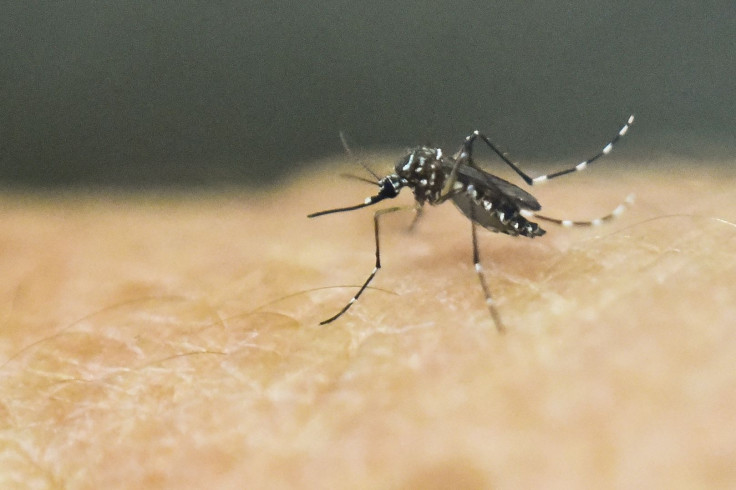What Is La Crosse Encephalitis? Boy Diagnosed With Dangerous Mosquito-Borne Virus

An emergency room nurse from Ohio issued a stark warning on the importance of using bug spray after her 7-year-old son was diagnosed with La Crosse encephalitis, a rare and dangerous virus that has been spreading lately, reports said Monday.
The incident began late August when her youngest son Joshua Gay started complaining about a headache a few days after he played soccer outside.
“On Wednesday [Aug. 29], he woke up with a headache. I checked him for a fever and took him to school,” Carissa Gambs, who works at Aultman Hospital, said. “The teacher sent me an email later saying he had a fever.”
According to Gambs, from Canton, she followed typical protocol and gave him Children’s Tylenol and Motrin. He slept at his father’s house that day. Next day morning, she was informed his fever spiked to 104.2 degree Celsius, after which she went over and gave him more Tylenol and Motrin, reports said.
“I thought it was just an early flu or back-to-school germs,” she said.
“There was nothing out of the ordinary,” Joshua’s dad, Brandon Gay, said. “We didn’t have a reason to suspect anything.”
The same day, Gambs picked up Joshua from his father’s house and the fever returned. She decided to not let him go to the school that day, and when she went to check in on him after a few hours, she found him unresponsive, reports said.
“I came into his room and called him, but he was unresponsive,” she said. “He was having a focal seizure.”
She turned Joshua on his side and he vomited, which was when she decided to call 911. Joshua was then transported to Aultman’s emergency department.
He continued to suffer seizures even after reaching the hospital. A doctor suspected Joshua was suffering from something more than the normal flu, and therefore ordered tests. He transferred Joshua to Akron Children’s Hospital’s pediatric intensive care unit, where the boy was diagnosed with La Crosse encephalitis.
“This has been a parent’s worst nightmare, the things that have happened and the fears that we had,” Gambs said. “I am an emergency room nurse at Aultman and see awful things all the time. However, it is 100 percent different when it is your own child.”
According to the Center For Disease Control and Prevention (CDC), La Crosse encephalitis virus is transferred to a human being through the bite of an infected mosquito which is most active in the daytime. There are no apparent symptoms due to the virus, but initial warnings can include fever, headache, nausea, vomiting, and tiredness.
The virus has no real cure or vaccine, but most often, the symptoms are treatable. In severe cases, it can lead to encephalitis (an inflammation of the brain) and can include seizures, coma, and paralysis, the website said.
Most of these severe cases usually happen with children under the age of 16, and in rare cases, the virus can result in long-term disability or death.
According to the CDC website, the only prevention from the virus is to avoid mosquito bites by using insect repellants.
“This is not a typical mosquito,” Brandon Gay said referring to Eastern Treehole mosquitoes, which lay their eggs in the holes of trees and in containers and is responsible for the spread of the disease. “Ohio’s the No. 1 state for these mosquitoes. They did tell us they’re seeing an uptick.”
According to a report in the Columbus Dispatch, there were 179 cases of La Crosse encephalitis between 2008 and 2017 in Ohio, with a notable increase in recent years.
Joshua’s diagnosis was confirmed Sep. 8 and he was kept in the hospital for 12 days. An inter-cranial device to combat swelling was installed in his brain. He was also given anti-seizure and anti-viral medication. Gambs said Joshua returned to school and was receiving therapy to help with his balancing issued and leg weakness. He will also be undergoing follow-ups with several neurological specialists and occupational therapists as he is now at a higher risk for seizure reoccurrence.
“I am very thankful for the people in my life,” Gambs said in a Facebook post she shared Sept. 24. “I have had more support than I know what to do with. My child came home. That is all I asked for. He is home and stronger each day. He looks normal. His legs are weak. The glue is almost out of his hair. He has a scar on his right arm. He has toddler type tantrums now as a side effect, perhaps lifelong. He is at a 30 percent chance for seizures as well. But he is alive and home.”
© Copyright IBTimes 2025. All rights reserved.





















